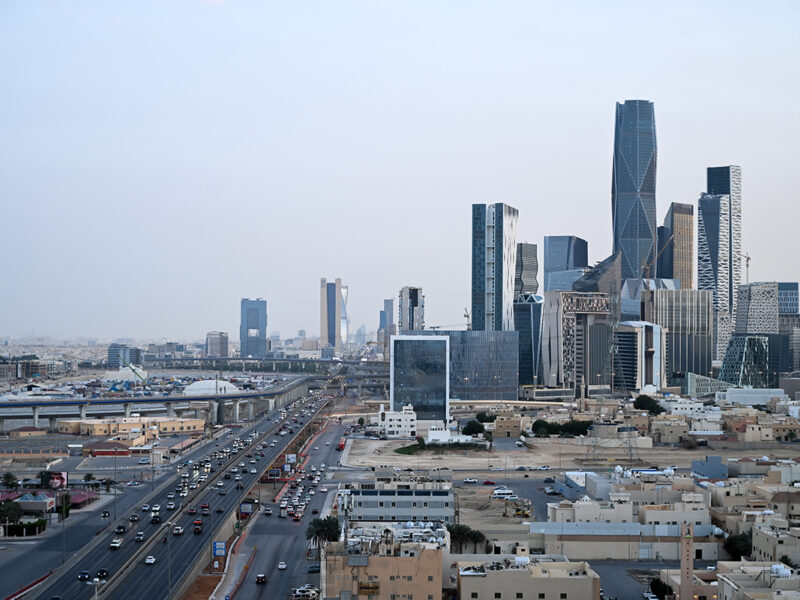The move by Abu Dhabi this week to start trading futures contracts for Murban crude has been described as a “positive move for the market”, which will give the oil producing giant an edge over its competitors, according to Leila Benali, chief economist at the International Energy Forum (IEF).
The historic launch of Murban trading on the new ICE Futures Abu Dhabi (IFAD) commodities exchange signalled the first time an OPEC member from the Arabian Gulf has allowed its oil to be freely sold and shipped anywhere in the world.
Benali told Arabian Business: “I think all in all it’s a positive move for the market. Anything removing destination restrictions, anything improving the liquidity of the market is definitely welcome.”
According to a report from Bloomberg, on its first trading day, volume in Murban for June, the first month for which cargoes will be available, and for July both exceeded 2,200 lots, with more than 1,100 August contracts changing hands and several hundred for September. Each lot represents 1,000 barrels. The contract for June delivery traded at $63.78 a barrel as of 2:50 p.m. yesterday in Abu Dhabi.
Murban is ADNOC’s flagship crude grade, with production capacity of over 2 million barrels per day. It currently accounts for around 50 percent of the UAE’s total production capacity, with plans to increase production to more than 2.5 million barrels per day by 2030, in line with ADNOC’s ultimate goal of growing its production capacity to 5 million barrels of crude per day.
The Murban blend competes with Saudi crude, the Kazakh CPC blend, Russian ESPO and with Brent.
Abu Dhabi National Oil Company (ADNOC) moved to forward pricing of its crude oil in March 2020 and previously priced Murban using Platts Dubai to determine its official selling price (OSP). The company will move its forward pricing mechanism for Murban to the ICE Murban Futures Contract from June, coinciding with the first expiry of Murban Futures.
“We need some time to see whether this relinquishing of pricing power and the removal of the destination restrictions will improve the liquidity in the market,” said Benali. “But all in all I think it’s a positive step to establish the profile of Murban as a potential benchmark for regional producers,” she added.
 The ADNOC logo
The ADNOC logo
The introduction of the world’s first Murban Futures contract is the latest step in ADNOC’s ongoing transformation into a more market and customer centric organisation. By making Murban a freely traded crude, similar to Brent or WTI, customers have better price transparency, flexibility to hedge and manage risks and increased access to Murban crude.
“We need to make sure that other exporters will adopt this benchmark in the future and that’s not taken for granted. You still have lots of conditions before Murban establishes itself as a real benchmark for all the traders that are trading similar brands and offering to Asia,” said Benali.
“All in all I think it gives it enough visibility in the market. It has had the support of many players. The traders are, of course, happy to have more visibility in terms of pricing, a bit more power in terms of pricing and the ability to move the crude as they wish.”
Discovered in 1958, Murban has played a pivotal role as the bedrock of the UAE’s sustained economic development.
ICE Murban Futures are physically delivered contracts, with one futures contract equating to 1,000 barrels of Murban crude oil delivered from the ADNOC Terminal located in Fujairah, on the east coast of the UAE.
 Rystad Energy’s head of oil markets, Bjornar Tonhaugen.
Rystad Energy’s head of oil markets, Bjornar Tonhaugen.
Head of oil markets at Rystad Energy, Bjornar Tonhaugen, told Arabian Business: “It is a bit premature to compare the Murban futures with Brent and WTI contracts in terms of importance. Time will show how popular the uptake of this will be, but it has the potential to help ADNOC cement its position as a key oil producer and support its ambitions to expand crude capacity to 5 million barrels per day to 2030.
“Also it’s popular among Asian customers, and is somewhat similar to Brent and WTI in quality, but has more sulphur which makes it not equally easy to process as with Brent and WTI.”









